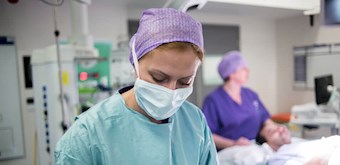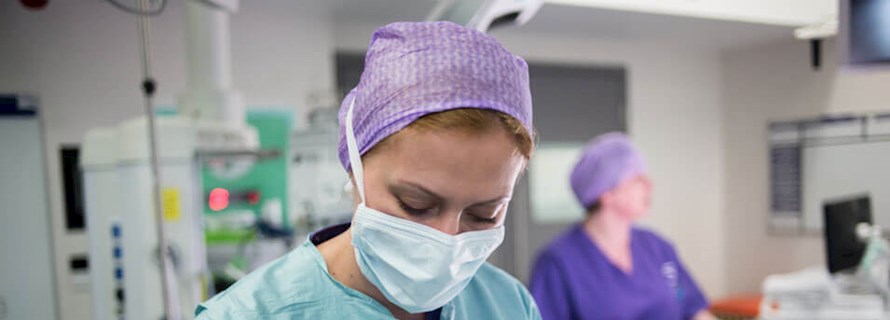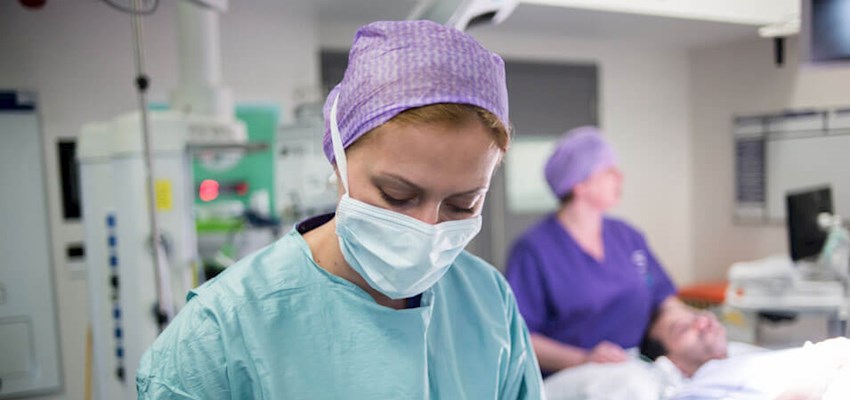Diverticular resection
Surgery to remove part of colon affected by diverticulitis
Diverticulitis can lead to complications that may require surgery. HCA UK experts explain more about the treatment.
What is diverticular disease?
Sometimes, the bulges can become infected and inflamed, which is called diverticulitis. In extreme cases it can require a diverticular resection, where part of the affected area is removed.
Need to know
-
What are the symptoms are diverticular disease? icon plus
Symptoms of diverticular disease might include:
- occasional pain in the lower left side of your tummy
- constipation
- diarrhoea
- bloating
- mucus in your stools (poo)
Diverticular disease can have similar symptoms to other conditions, so you will usually have tests to rule these out. These might include:
- blood tests
- colonoscopy (inserting a camera into your back passage to examine your bowel)
- CT scan (creating detailed images of your bowel)
-
Complications from diverticulitis icon plus
In severe cases, diverticulitis can lead to complications such as:
- fistulas (tunnels that develop near the anus)
- peritonitis (infection in the inner lining of the tummy)
- hole in your colon (perforation)
- bleeding from your rectum (bottom)
- a blockage in your bowel preventing you from passing waste (bowel obstruction)
- sepsis (serious infection)
Diverticular resection involves removing the affected part of your large intestine (colectomy) which can be performed through open or laparoscopic (keyhole) surgery.
-
After treatment icon plus
If you had keyhole surgery the cuts are smaller, so your recovery is likely to be quicker than with open surgery, which is a more complex operation.
In some cases, a stoma is also created during surgery. This is an artificial opening on your abdomen made to allow stools (poo) or urine to pass out of the body, and you’ll have a colostomy bag fitted.
The surgery is done while you’re asleep under general anaesthetic. You’ll need to avoid eating and drinking for a few hours before surgery. Our skilled multidisciplinary team is on hand to help to explain the procedure and answer any questions you might have.
Our colorectal consultants




Our locations
From complex colorectal surgery to diagnostic tests and procedures, we provide exceptional colorectal care across our network of hospitals, outpatient centres and specialist clinics.
Book an appointment
Our team can help with any enquiries or you can make an appointment with one of our experienced consultants.
Call us today
020 7079 4344